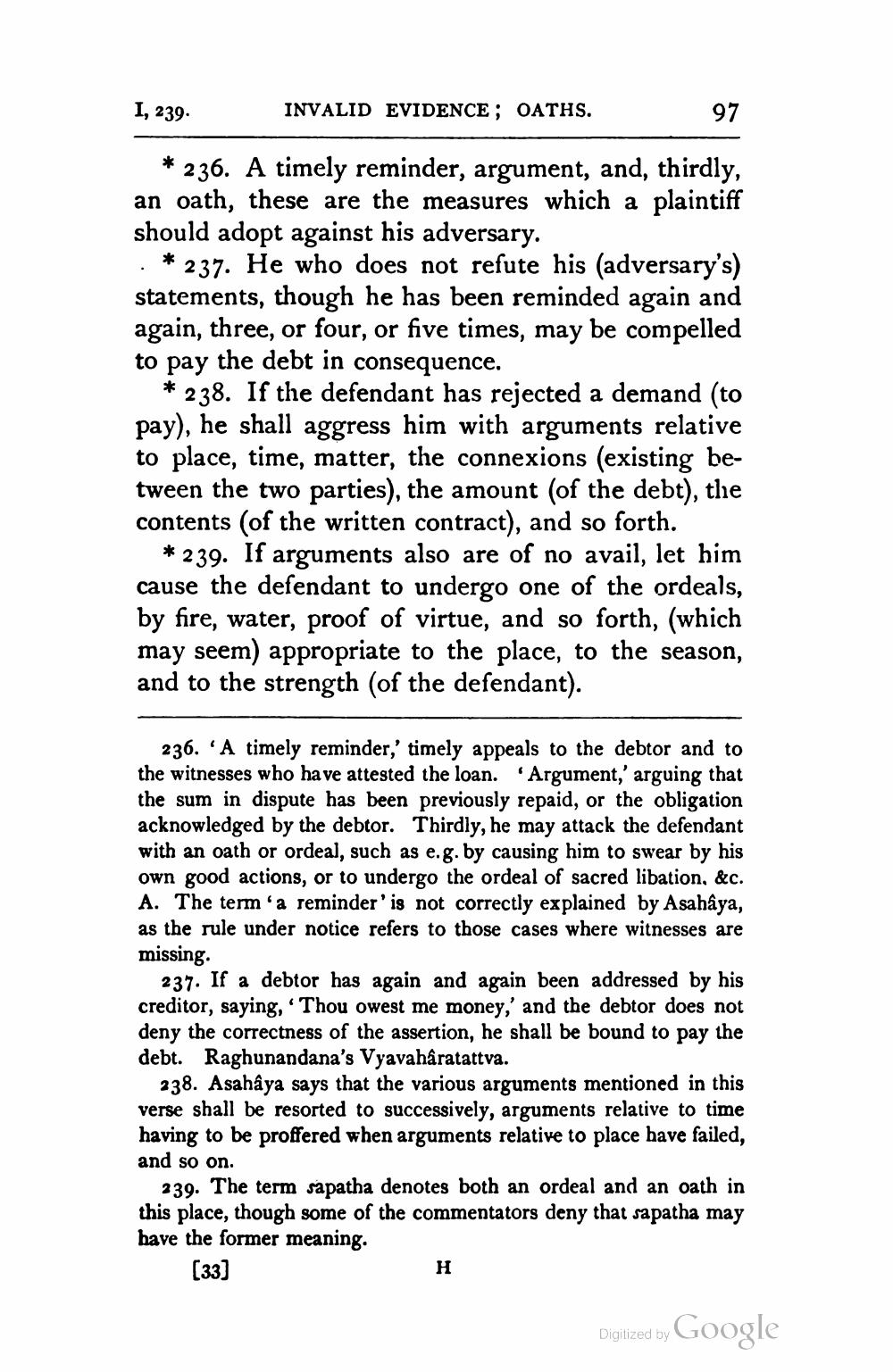________________
I, 239.
INVALID EVIDENCE; OATHS.
97
* 236. A timely reminder, argument, and, thirdly, an oath, these are the measures which a plaintiff should adopt against his adversary. . * 237. He who does not refute his (adversary's) statements, though he has been reminded again and again, three, or four, or five times, may be compelled to pay the debt in consequence.
* 238. If the defendant has rejected a demand (to pay), he shall aggress him with arguments relative to place, time, matter, the connexions (existing between the two parties), the amount (of the debt), the contents (of the written contract), and so forth.
* 239. If arguments also are of no avail, let him cause the defendant to undergo one of the ordeals, by fire, water, proof of virtue, and so forth, (which may seem) appropriate to the place, to the season, and to the strength (of the defendant).
236. 'A timely reminder,' timely appeals to the debtor and to the witnesses who have attested the loan. Argument,' arguing that the sum in dispute has been previously repaid, or the obligation acknowledged by the debtor. Thirdly, he may attack the defendant with an oath or ordeal, such as e.g. by causing him to swear by his own good actions, or to undergo the ordeal of sacred libation, &c. A. The term a reminder' is not correctly explained by Asahaya, as the rule under notice refers to those cases where witnesses are missing.
237. If a debtor has again and again been addressed by his creditor, saying, 'Thou owest me money,' and the debtor does not deny the correctness of the assertion, he shall be bound to pay the debt. Raghunandana's Vyavahâratattva.
238. Asahaya says that the various arguments mentioned in this verse shall be resorted to successively, arguments relative to time having to be proffered when arguments relative to place have failed, and so on.
239. The term sapatha denotes both an ordeal and an oath in this place, though some of the commentators deny that sapatha may have the former meaning. [33]
H
Digitized by Google




